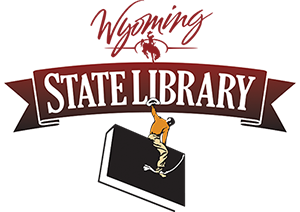 Reposted from Library Research Service
Reposted from Library Research Service
Libraries are not traditionally thought of as social spaces. Stereotypes of older women glaring over thick-rimmed glasses to shush talkative individuals pervade our pop-culture references. However, studies show that public libraries foster social support and decrease isolation. At a time when loneliness is being deemed a public health crisis in the United States, libraries are uniquely positioned to offer up a cure.
Cigna, the global health service company, reported epidemic levels of loneliness in 2019 that continue to intensify. After surveying 10,500 adults, they found that three in five (61%) classify as lonely, a seven percentage-point increase from 2018. The results are based on a 20-item questionnaire developed to assess self-reported, subjective feelings of loneliness or social isolation. A score of 43 or higher indicates loneliness. The report’s findings show a national average of 45.7 out of a possible 80.
Loneliness is affecting people of all ages, all demographics, and across socio-economic divides. Gen Z (18-22) is the loneliest age bracket, with levels decreasing as people get older. Additionally, entry-level employees and executives are the two most likely groups to report always or sometimes feeling there is no one they can turn to, not feeling close to anyone, and that no one really knows them well. Hispanic and African American workers agree in higher numbers that they feel abandoned by coworkers when under pressure at work. So how do we reach such a wide-ranging cross-section of American society to address this epidemic? Open the door to a public library.
Libraries’ extensive population reach, their access to diverse sectors of the U.S. population, the public trust they command, and their diverse geographic coverage favorably position them as a multi-sectoral strategy to advance public health. Ninety-five percent of the U.S. population live within a public library service area and as Donald Barclay writes, “Public libraries are perhaps the last remaining indoor public spaces where an individual can remain from opening until closing without needing any reason to be there and without having to spend any money.”
Research published in the Journal of Community Health shows that libraries can address social exclusion among structurally vulnerable groups, from homeless individuals to new parents. In Denver, a Community Technology Center team regularly visits the local day shelter to give participants bus tokens, a tour of the main library, and library cards. In New Jersey, a new parents’ support group meets weekly at the local library. LGBTQ youth who may not feel safe at home or on the streets can turn to a library as a designated safe space. Library programs such as Drag Queen Story Hour also reduce social exclusion by increasing acceptance of the LGBTQ community. Additionally, libraries decrease social isolation by offering programs that build community and foster relationships. The Lifetime Arts’ program operates across 13 states and 80 public libraries, providing writing, painting, choir, and dancing classes for older adults. For newcomers such as refugees and immigrants, libraries serve as critical spaces to foster social integration. In Hartford, Connecticut, the public library provided services to promote immigrant civic engagement, including a core group of volunteer immigrants to help newly arrived individuals with tasks such as accessing community and legal services.
The 21st century library is an intersection of people and purposes. As national health data highlights a critical need for connection, the social role of libraries should not be overlooked. However, additional research is needed to evaluate the impact libraries have on the overall social well-being of patrons and the untapped potential for the wider — lonelier — public.
Note: This post is part of the series, “The LRS Number.” This series highlights statistics that help tell the story of the 21st-century library.
